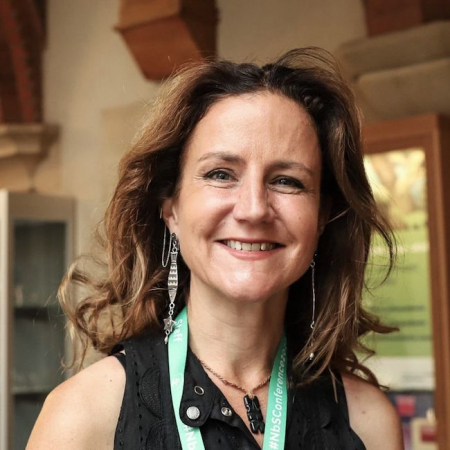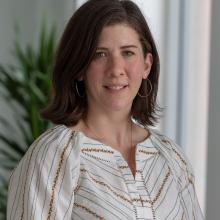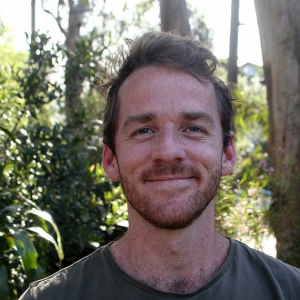Nature-based Solutions to Global Challenges Foundation Course
Why nature-based solutions?
Nature-based solutions are now widely recognised as playing a critical role in addressing major global challenges, in particular mitigating and adapting to climate change whilst delivering multiple benefits for people and nature.
With careful implementation, they can also build resilience and reduce risk within supply chains and can help organisations meet both their net-zero and nature-positive goals. Consequently, nature-based solutions have rapidly gained traction in business and policy over the past 2-3 years. However, there remains confusion about what counts as a nature-based solution, how they compare to tech-based approaches, and how they should be designed, implemented, financed and governed ethically and sustainably.
To address this, we offer the Nature-based Solutions to Global Challenges Foundation Course to improve awareness and understanding of the science, policy, practice, resourcing and governance of nature-based solutions.
Who is this for?
Our course is for current and future public servants and leaders from the private sector and civil society. It will provide participants with knowledge that will enhance future work on nature-based solutions. We offer this as an online course delivered over 8 weeks.
The next course run will be in September 2024.
The course is an introduction to NbS for professionals working in a range of sectors. For example, staff at NGOs from the development and environmental sectors wanting to better understand the evidence from research and practice on how NbS can deliver multiple benefits and for whom, to enable them to hold governments to account; business executives wanting to better understand the risks and also the opportunities of investing in NbS; civil servants, regulators, and investors working to develop policies that can enable economic recovery whilst supporting net-zero and biodiversity goals; and philanthropists wanting to support activities that have positive outcomes for both people and nature.
Current course runs
Next course run
September 2024, dates tbc.
Online sessions on Tuesdays: 11-13hrs and 14-16hrs
What is involved?
This 8-week online course will take place over 9 weeks to include a mid-course reading week. Each week will cover a critical theme around the science, policy, practice, governing and/or financing of NbS.
There will be two sessions a week, each 1.5-2 hours long. The first of the two sessions with involve a presentation on the theory and evidence around a particular theme, followed by Q&A; the second, an interactive workshop (with break out groups) show-casing examples of the practice of NbS from around the world, highlighting good as well as bad practice examples related to the theme of the week.
Presentations will be delivered and workshops facilitated by world-leading experts from Oxford University and beyond on the science, policy and practice of nature-based solutions and will draw on examples from a wide range of ecological, socioeconomic and political contexts from across the world.
Attendance and participation at all sessions is expected.
Who is involved?
Critical themes will be taught by the following experts:
-

Nathalie Seddon
Professor of Biodiversity and founding Director of the Nature-based Solutions Initiative, University of Oxford
Read bioNathalie Seddon is Professor of Biodiversity and Founding Director of the Nature-based Solutions Initiative in the Department of Biology at the University of Oxford. She is also Director of the Agile Initiative, co-lead of the Biodiversity and Society Programme and Leverhulme Centre for Nature Recovery, and is a Senior Research Fellow at Wadham College.
In 2021, she co-founded the Oxford University Social Venture, Nature-based Insetting of which she is non-executive Director.
Nathalie trained as an evolutionary ecologist at Cambridge University and has over 25 years of research experience in a range of ecosystems across the globe. As a University Research Fellow of the Royal Society, she developed broad research interests in understanding the origins and maintenance of biodiversity and its relationship with global change. Her work now focuses on determining the ecological and socioeconomic effectiveness of nature-based solutions to societal challenges, and how to increase the influence of robust biodiversity science on the design and implementation of climate and development policy.
-

Ben Caldecott
Founding Director of the Oxford Sustainable Finance Group, University of Oxford
Read bioBen Caldecott is the founding Director of the Oxford Sustainable Finance Group at the University of Oxford Smith School of Enterprise and the Environment. At the University of Oxford, he is the inaugural Lombard Odier Associate Professor and Senior Research Fellow of Sustainable Finance, the first ever endowed professorship of sustainable finance, and a Supernumerary Fellow at Oriel College, Oxford. Ben is also the founding Director and Principal Investigator of the UK Centre for Greening Finance & Investment (CGFI), established by UK Research and Innovation in 2021 as the national centre to accelerate the adoption and use of climate and environmental data and analytics by financial institutions internationally.
Ben specialises in environment, energy, and sustainability issues and works at the intersection between finance, public policy, and academe, having held senior roles in each domain. He has authored and edited a substantial number of publications related to sustainability and is an experienced media commentator and public speaker. His expertise and expert evidence have been recognised in high profile legal cases, including in the Federal Court of Australia and the High Court of England and Wales. He is a regular peer reviewer and has a number of trustee, board, and advisory panel appointments, including with the UK Climate Change Committee’s Adaptation Committee, UK Export Finance’s Export Guarantees Advisory Council, the Green Alliance, The Prince of Wales’ Accounting for Sustainability Project, and Climate Impact X’s International Advisory Council.
-

Nicola Ranger
Leader of the Resilience and International Development Programme, Environmental Change Institute. She is also Executive Director of Oxford Martin Systemic Resilience Programme
Read bioDr Nicola Ranger leads the Resilience and International Development Programme of the Environmental Change Institute. She is also Executive Director of the Oxford Martin Programme on Systemic Resilience and a Senior Research Fellow at the Institute for New Economic Thinking of the Oxford Martin School.
Her research addresses the measurement, valuing and integration of resilience and environmental sustainability risks, impacts and goals within decision making, and the alignment of policy and finance with sustainable, resilient and inclusive growth. Her research covers climate, nature, resilience, adaptation and the SDGs with a strong finance, macro and public policy lens. She works with governments, Central Banks, regulators, financial institutions and international organisations to provide data, analytics and evidence to inform policies, finance and investment at all scales to build resilience and positively advance sustainability and inclusive development. She works predominantly in UK/Europe and emerging and developing economies
-

Cécile Girardin
Technical Director of the Nature-based Solutions Initiative, and founding Director of Nature-based Insetting, Ltd.
Read bioCécile combines years of experience in climate change policy analysis with a background in tropical ecology and a thorough understanding of forest ecosystem functioning to provide a unique multidisciplinary approach to her work. She is Director of Nature Based Insetting, Technical Director of Nature-Based Solutions Initiative, Science Lead of the Oxford Biodiversity Network, and Oxford Martin School Fellow.
-

Harriet Bulkeley
Professor of Geography, University of Durham
Read bioHarriet Bulkeley FAcSS FBA undertook her PhD at the University of Cambridge and holds joint appointments as Professor in the Department of Geography, Durham University, and at the Copernicus Institute of Sustainable Development, Utrecht University. Her research focuses on environmental governance and the politics of climate change, energy, nature and sustainable cities. She has published 8 books, several edited collections and over 60 papers, including An Urban Politics of Climate Change (Routledge 2015) and Accomplishing Climate Governance (CUP 2016). She has been included in the Highly Cited Researchers list of the top 1% of researchers internationally four times since 2016.
From 2016 – 2021, Harriet coordinated the H2020 NATURVATION project examining the role of urban innovation with nature-based solutions for sustainable development and was a co-investigator on the H2020 REINVENT project examining the political and financial challenges of decarbonisation. She has undertaken commissioned research for the UK Government, European Commission, NGOs, UN-Habitat, the OECD and the World Bank. In 2014, Harriet was awarded the King Carl XVI Gustaf’s Professorship in Environmental Science and a Visiting Professorship at Lund University, Sweden and in 2018 was granted the Back Award by the Royal Geographical Society in recognition of the policy impact of her work on climate change. In 2019, she was elected as a Fellow of the Academy of the Social Sciences and as a Fellow of the British Academy.
-

Erin Gray
Senior Economist, World Resources Institute (WRI) Economics Center
Read bioErin Gray currently leads the Global Economics Center’s work on valuation of nature-based solutions (NbS) and manages WRI’s Economics Community of Practice. Erin works across WRI’s Programs and Centers to provide research and analysis primarily on the topics of (1) making the economic case for restoring and protecting NbS for water security and climate change adaptation, (2) catalyzing finance to advance NbS solutions and multistakeholder partnerships, and (3) advancing decarbonization solutions. Erin has developed a number of economic and financial cost-benefit studies, tools, and guidance documents to help decision-makers understand the economic, social and environmental trade-offs of policy and infrastructure decisions.
Before joining WRI, Erin worked as a consultant for ICF International’s Climate Change and Sustainability team, where she supported analysis of global and domestic impacts of Federal energy and land use policies. She also has several years’ experience evaluating impacts and participation eligibility for ecosystem service markets.
Erin received her Master of Environmental Management degree from Duke University’s Nicholas School of the Environment, concentrating in Environmental Economics and Policy. Erin also holds a Bachelor of Arts degree in both Economics and Environmental Analysis and Policy from Boston University.
-

Kes McCormick
Professor of Business Development and Sustainable Innovation
Read bioKes McCormick is a Professor of Business Development and Sustainable Innovation at the Department of People and Society at the Swedish University of Agricultural Sciences (SLU). He also holds a position at the International Institute for Industrial Environmental Economics (IIIEE) at Lund University. With a background in political science and environmental science, and 20 years of academic and management experience, Kes engages in a combination of research, education and collaboration activities on sustainability, business, innovation and governance. He is deeply engaged in online and onsite education, capacity building and lifelong learning – including through Massive Open Online Courses with over 125,000+ participants.
With extensive experience with research, innovation, project and stakeholder management based on diverse leadership roles, Kes has worked in 30+ projects and assignments collaborating with over 200+ organisations – including local governments, public agencies, business and industry, NGOs and SMEs. He collaborates continuously with a range of local and international organisations. Since 2004, Kes produced over 120+ publications (with more than 280,000+ downloads and 7000+ citations) in a diversity of formats for a range of target audiences. Finally, he is an experienced teacher and course coordinator, as well as a skilled moderator, engaging presenter and event organiser.
-

Gus Fordyce
Lead Scientist, Nature-based Insetting
Read bioGus is the lead scientist at Nature-based Insetting working on designing, implementing, and communicating the analytical approaches used to understand how supply chains are impacting biodiversity and greenhouse gas emissions. His work links top-down and bottom-up conservation approaches, by aligning the methods used in corporate accounting with field data used to understand how biodiversity responds to human impacts.
He is trained and previously worked as a marine ecosystem scientist for seven years, across three continents in both the academic and NGO sectors. This involved targeted conservation of charismatic large marine species, analysing the socioecological characteristics of locally managed marine areas, and studying the future of coral reefs exposed to climate extremes.
-

Caitlin Hafferty
Postdoctoral Researcher in Environmental Social Science
Read bioCaitlin is a Postdoctoral Researcher in Environmental Social Science interested in addressing interlinked social, environmental, and economic challenges through interdisciplinary and participatory research. Her research broadly explores the governance and equity dimensions of nature recovery and nature-based solutions. She is particularly interested in effective and meaningful public and stakeholder engagement in environmental decision-making processes.
She is currently working with the Nature-based Solutions Initiative as part of the Agile Initiative, on a project that explores scaling-up nature-based solutions in the UK. This will lead on to further research exploring the governance and equity of nature restoration efforts in two case study landscapes (Oxfordshire and the central Scottish Highlands) as part of the Leverhulme Centre for Nature Recovery.
-

Rachael Garrett
Moran Professor of Conservation and Development at the University of Cambridge
Read bioRachael Garrett is the Moran Professor of Conservation and Development at the University of Cambridge. Her research examines the drivers and impacts of land change, primarily in forest landscapes, and the effectiveness and equity of forest conservation policies and practices. Professor Garrett works closely with national agriculture and forestry agencies in the regions where she works, including ongoing partnerships with Embrapa in Brazil. She also works closely with companies to advise them on their supply chain policies.
Details
When
Future course dates:
September 2024, tbc.
Price
£3,200 private sector
£2,500 public sector
(lower rates and scholarships for those based in lower-income nations)
Please read our pricing policy
Duration
8 weeks with a mid-course reading week
2 x 2-hour sessions per week on Tuesdays except during reading week
Location
Online
Apply
Please apply using our online form.
For further information contact
info.nbsi@biology.ox.ac.uk
We also provide bespoke versions of this course for organisations. Please contact us if you would like to discuss this opportunity further.
Themes
- 1: Origins, definitions, and policy landscape of nature-based solutions
- 2: Harnessing nature-based solutions to mitigate and adapt to climate change
- 3: Nature-based solutions for urban resilience and sustainable development
- 4: Economics of nature-based solutions, from local to global
- 5: Policy analysis for nature-based solutions
- 6: Governance of nature-based solutions
- 7: Financing nature-based solutions
- 8: Business, biodiversity and nature-based solutions

